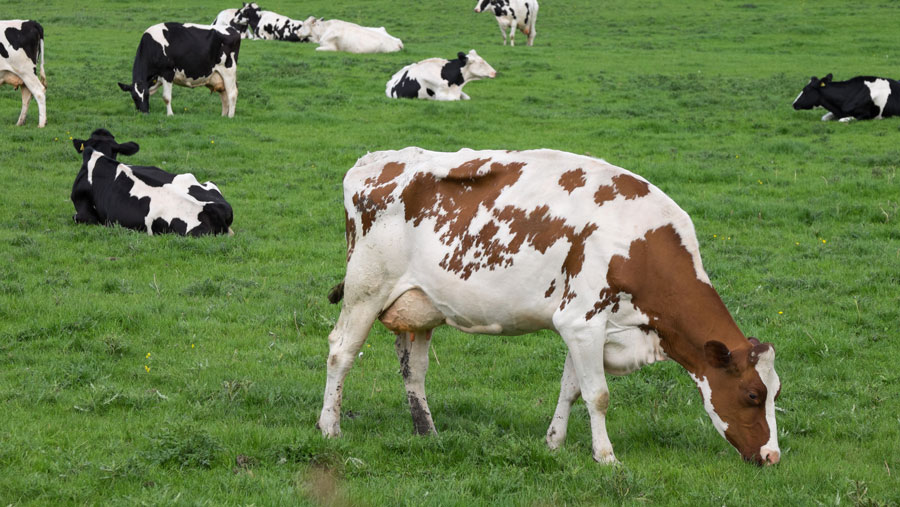Arla announces tough standards for organic dairy farmers
 © Tim Scrivener
© Tim Scrivener Arla is asking all its organic farmers to increase biodiversity and convert to 100% renewable energy.
The co-op has issued a new set of organic standards, due to be introduced from January 2022, as part of its wider business target for 50% growth in its organic dairy business in the next five years.
Arla organic farmers will be expected to reduce carbon dioxide equivalent (CO2e) emissions/kg of milk by 30% by 2028 – two years before Arla’s wider dairy target of 2030.
See also: 5 ways to reduce methane in dairy cows through nutrition
Farmers are expected to have begun putting solutions in place to meet the 100% renewable energy requirement by January 2022.
The four key areas of focus for the co-operative will be climate impact, animal welfare, soil health and biodiversity.
Requirements of Arla’s new organic standard
Soil health
- Perform a carbon assessment on soils to monitor changes in organic matter, carbon levels and nitrogen levels
- Self-assessment of soil health indicators looking at volumes of earthworms and soil structure
Biodiversity
- Annual self-assessment of on-farm biodiversity activities such as planting hedgerows and encouraging flower growth
- Implementing at least seven conservation measures from a list of 33 options
Climate impact
- Track and reduce on-farm emissions as part of climate check programme
- Reduce CO2e production by 30% by 2028 (previously 2030)
- Convert to 100% renewable energy
Animal welfare
- Increase minimum number of days from 120 to 150 for cows out on grass
- Increase access to cow brushes
Growth in organic sector
The dairy co-op’s target of 50% growth of its organic dairy business by 2026 will see its organic milk volume milk grow from 180m to 270m litres.
Sales of its organic dairy products have reportedly grown by 9.4% in value during the past year, compared to 5.6% growth in non-organic dairy products. Overall, the organic dairy category grew in value by 4% last year.
Demand for dairy products in the UK is currently at just 1.2%, which is much lower than in many other European countries. However, there has been strong growth year-on-year for the past five years.
Ash Amirahmadi, managing director at Arla Foods’ UK, said: “We believe there is a big potential for organic dairy here in the UK as more and more British consumers are turning to organic food.
“Just like in other parts of Europe, we believe the trend of organic dairy will continue to grow in the UK, and with our new and improved organic standards, we want to make it even more attractive for British consumers to choose organic when they are shopping in the dairy aisle.
“Arla expects to source the initial part of the growth ambition for its organic business primarily through increased production from existing organic farmers.”
